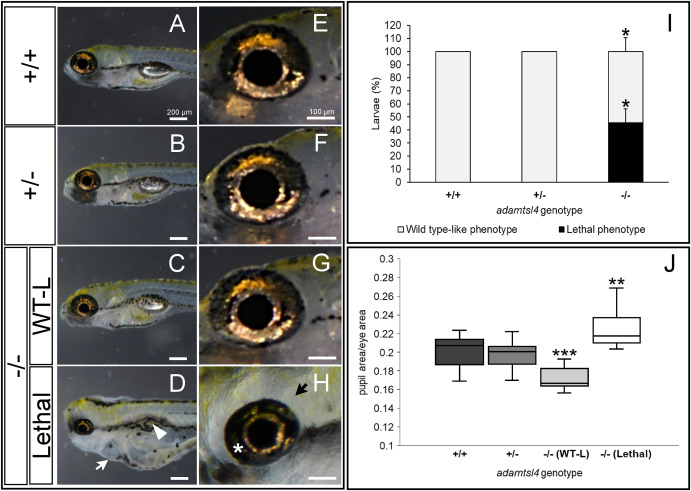Fig. 2 Morphological characterization of F3 adamtsl4-KO larvae at 6 dpf. Representative photographs of wild type (+/+), heterozygous (±), wild type-like knockout (−/− (WT-L)), and lethal knockout (−/− (Lethal)) larvae are shown. A-D. General body morphology. White arrow: pericardial edema; White arrowhead: abnormal swim bladder. E-H. Magnification of ocular structures. I. Quantification of the percentage of KO larvae displaying wild type-like and lethal phenotypes. The data represent three independent replicates with the following total sample sizes: wild type, n = 31; heterozygous, n = 59; mutant homozygous, n = 23. J. Quantification of pupil area normalized to total eye area. The following sample sizes were used for eyes: wild type, n = 24; heterozygous, n = 24; homozygous, n = 24. ∗: p < 0.05; ∗∗: p < 0.01; ∗∗∗: p < 0.001.
Reprinted from Experimental Eye Research, , Tevar, A., Aroca-Aguilar, J.D., Atiénzar-Aroca, R., Ramírez, A.I., Fernández-Albarral, J.A., Escribano, J., Zebrafish adamtsl4 knockout recapitulates key features of human ADAMTSL4-related diseases: a gene involved in extracellular matrix organization, cell junctions and development, 110572110572, Copyright (2025) with permission from Elsevier. Full text @ Exp. Eye. Res.

